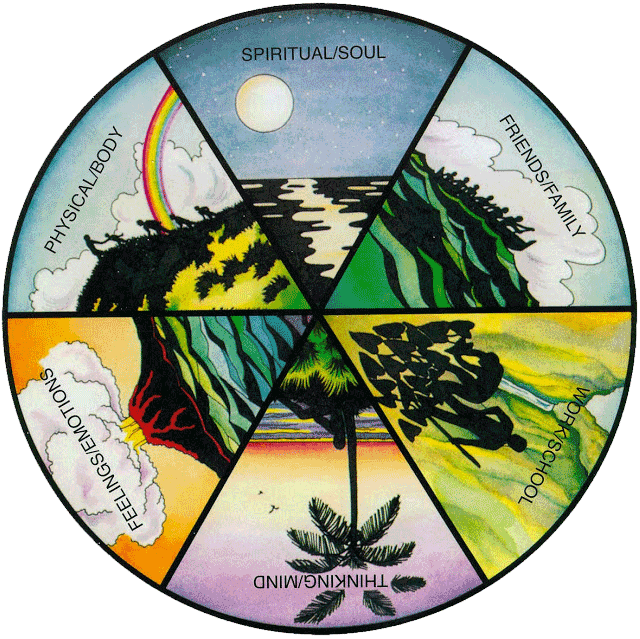Mental Health 1
Session: Mental Health 1
753 - Community-Youth Led Process to Develop a Tabletop Role-Playing Game that Fosters Native Hawaiian Values and Youth Well-Being
Saturday, April 26, 2025
2:30pm - 4:45pm HST
Publication Number: 753.4477
May Okihiro, University of Hawaii, John A. Burns School of Medicine, Waianae, HI, United States; Angelica Raza-Furtado, Waianae Coast Comprehensive Health Center, Waianae, HI, United States; Aaron B. Ramirez, University of Hawaii, John A. Burns School of Medicine, Waipahu, HI, United States; Chantel Rubin Molina, University of Hawai'i - RCUH, Pacific Alliance Against COVID-19 Study Kamaehu o ke Kaiāulu; Thriving Youth of the Community (CHESI) Waianae Coast Comprehensive Health Center, Research Department, University Of Hawai'i at Hilo, School of Nursing, Student, Waianae, HI, United States; Rachel Baker-Ramos, Georgia Institute of Technology, Atlanta, GA, United States; Michael F. Parkin, Georgia Institute of Technology, Atlanta, GA, United States; Jeffrey JU. Vierra, Theorycraftist Games, aiea, HI, United States; Alika Spahn Naihe, Theorycraftist Games, Mililani, HI, United States; Ruben Juarez, University of Hawaii, John A. Burns School of Medicine, Honolulu, HI, United States; jack K.j. hobbs, Theorycraftist Games llc, Waianae, HI, United States; Josiah Hester, Georgia Tech, Atlanta, GA, United States
.jpeg.jpg)
May Okihiro, MD (she/her/hers)
Associate Professor
University of Hawaii, John A. Burns School of Medicine
Honolulu, Hawaii, United States
Presenting Author(s)
Background: Similar to other indigenous people, Native Hawaiians (NH) view health and well-being holistically. These concepts are centered on lōkahi (balance and harmony) among relationships with family and community, akua (spiritual), and ʻāina (land, natural environment). NH communities were once thriving, sustainable ecosystems. However, westernization, displacement of people from their ʻāina, and the illegal overthrow of the Hawaiian monarchy brought about rapid changes. Today, historical trauma persists as intergenerational cycles of disparities, including mental and emotional health disparities that worsened, especially for community youth, during and after the pandemic.
Objective: To address this crisis, our community-academic team partnered with a collective of local community game developers to develop and evaluate an interactive, tabletop role-playing game (RPG) as a means to foster lōkahi and youth well-being from a NH perspective
Design/Methods: To address this crisis, our community-academic team partnered with a collective of local Hawaiʻi community game developers to develop and evaluate an interactive, tabletop role-playing game (RPG) as a means to foster lōkahi and youth well-being from a NH perspective.
Results: The team centered the RPG on the multiple dimensions of lōkahi (Fig.1) with the goal of the game to “heal the ʻāina.” The game was named Kaona (Fig.2), for “hidden meaning”, as the game entertains while subtly creating important messages or lessons through NH values and practices, for players to discover. Players problem-solve, self-reflect, and build community as they navigate complex quests inspired by lived experiences and Hawaiian stories and legends. Youth were involved, through numerous engagement sessions at several community schools, in all aspects of game development and design including game concepts, character development, art work, narration, quest options, quest items, and world building. Frequent sessions allowed the team to rapidly iterate, addressing issues as soon as they emerged and proactively integrating community perspectives into the game. These sessions also enabled the developers to observe player interactions and understand how the game mechanics could be altered to foster more exciting, creative, empathic and collaborative play vs. individual achievement.
Conclusion(s): The RPG Kaona is an interactive culturally-centered tabletop game platform to promote NH values and youth collaboration as a means to heal the community. Final prototype playtesting with community youth across Hawaii is underway.
Fig 1. Dimensions of Lōkahi - Kamehameha Schools
 Kamehameha Schools - Kealapono ʻOhana Engagement: https://ksbe.edu/_apps/doc_bridge_cer/Wellness_Lokahi.pdf
Kamehameha Schools - Kealapono ʻOhana Engagement: https://ksbe.edu/_apps/doc_bridge_cer/Wellness_Lokahi.pdfFig 2. KAONA

